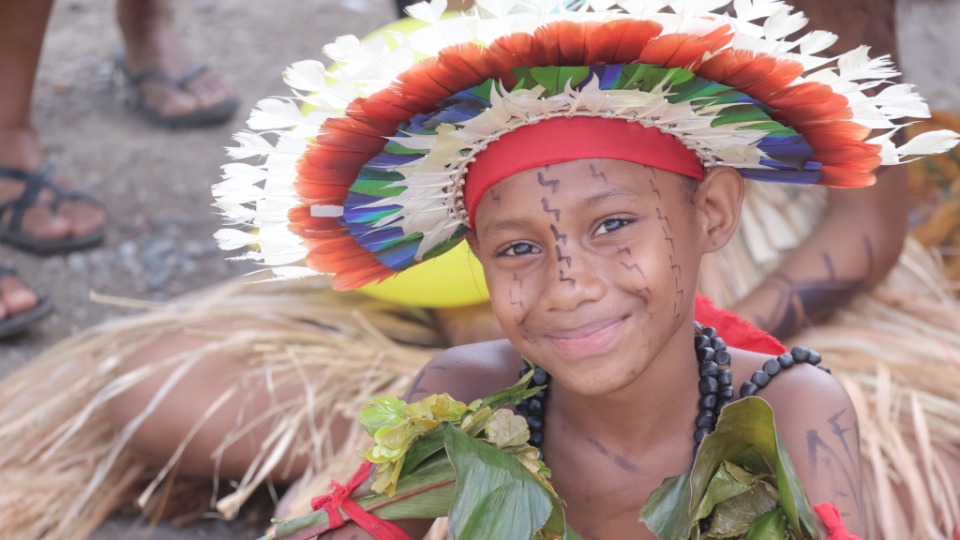Nearly 4,000 students, teachers, school administrators, and government officials gathered recently to thank The Church of Jesus Christ of Latter-day Saints for building two new, modern ablution blocks (a local term for a building containing washing facilities and toilets) for students of Wardstrip Demonstration Primary School in the heart of Papua New Guinea’s capital city of Port Moresby.
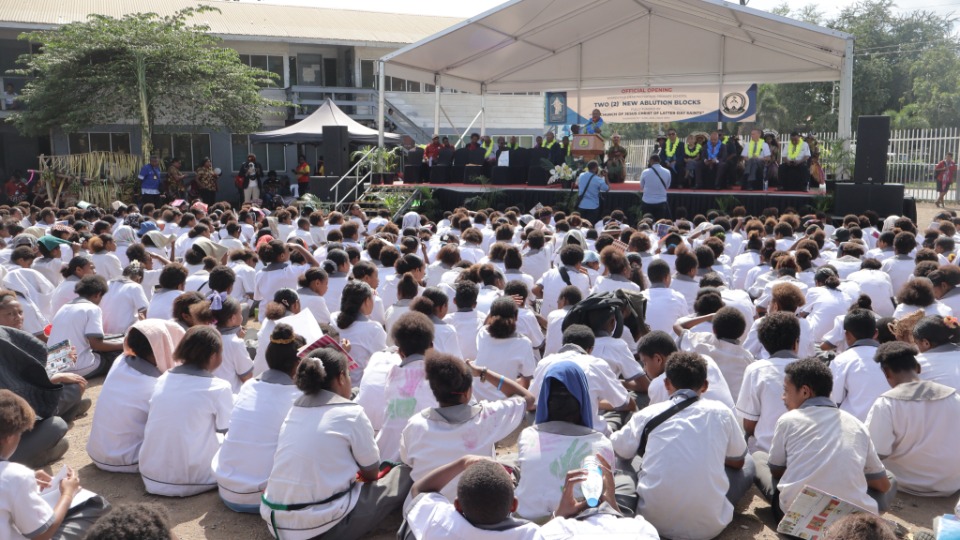
The much-needed facilities were a gift from the Church to one of the nation’s largest primary schools, with the Church absorbing all of the cost of materials and construction.
Representing the Church of Jesus Christ at the ceremony on 19 June was Port Moresby Stake President Andrew Kau. In his remarks, President Kau noted that disciples of Jesus Christ seek to do good in their communities and nations, wherever and however they are needed.
“We are based on a scriptural foundation to love God, and our neighbors. Our children will be blessed by this project, and so we are applying that scriptural foundation in our service here today for the sake of our children, our families, and our community.”
The Honourable Powes Parkop, chairman of Papua New Guinea’s National Capital District, said that the gift of the ablution stations was a major step forward for the school in its effort to create a positive and progressive learning environment for students and teachers.
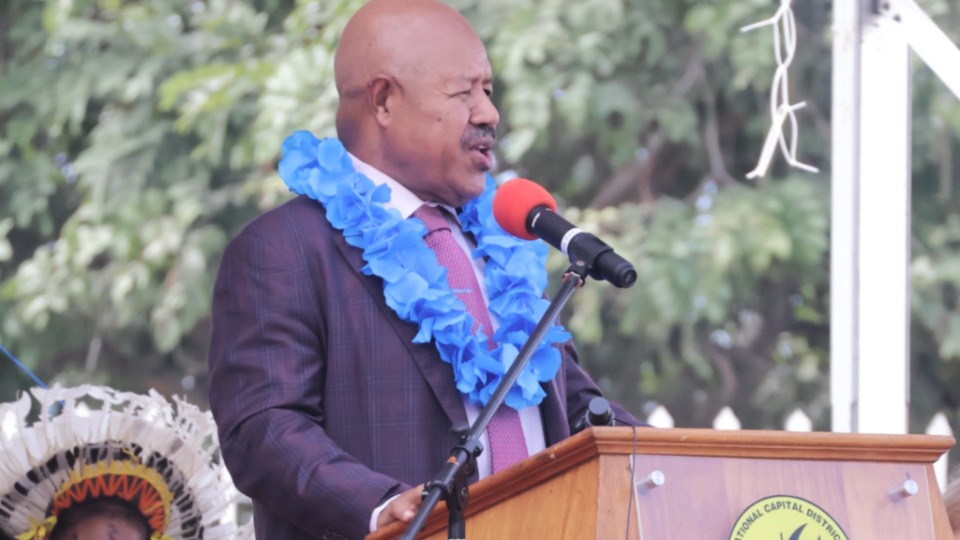
“We are thankful for The Church of Jesus Christ of Latter-day Saints in helping us achieve a healthier and safer academic environment so that this school can better realize its mission of serving its students and our great capital city.”
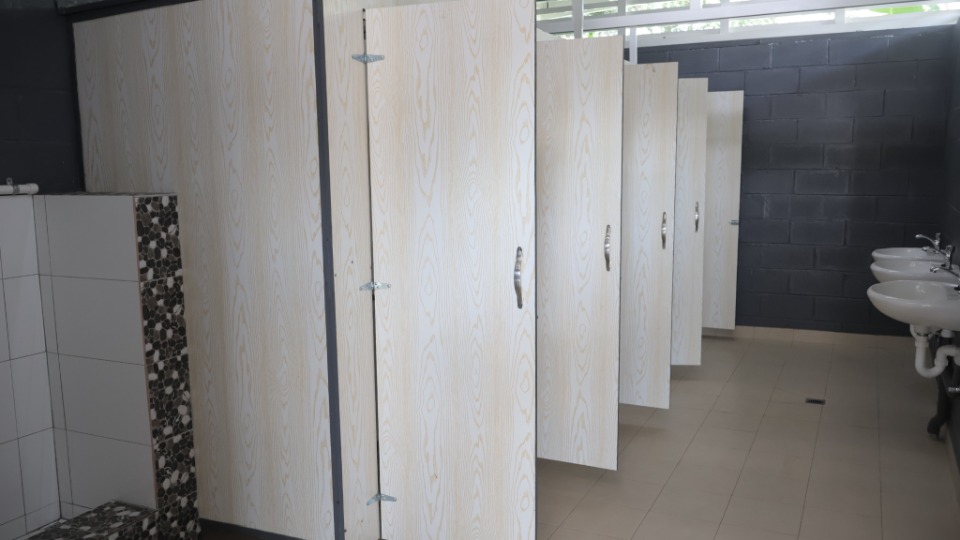
The event was documented by Papua New Guinea’s largest national newspaper, The National, and video of the event was recorded by the Office of the National Capital District Governor’s office.
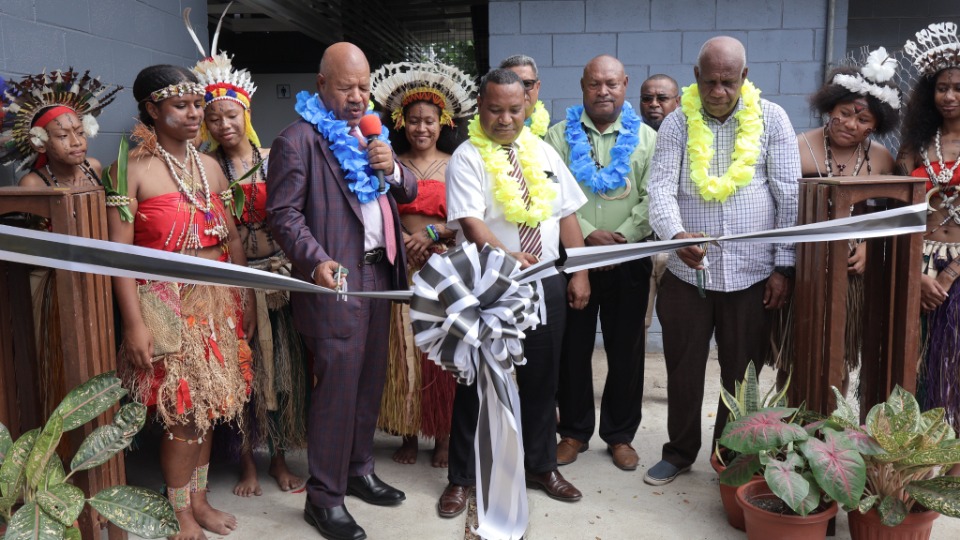
The Church of Jesus Christ of Latter-day Saints works throughout the world to meet human needs wherever they are found. Since 1998, the Church has been involved in nearly 250 projects throughout Papua New Guinea, strengthening faith and families by helping to provide educational, health, and public improvement projects that benefit all its citizens, regardless of their religion or life situation.
Read more in a newspaper article published by PNG Haus Bung.
